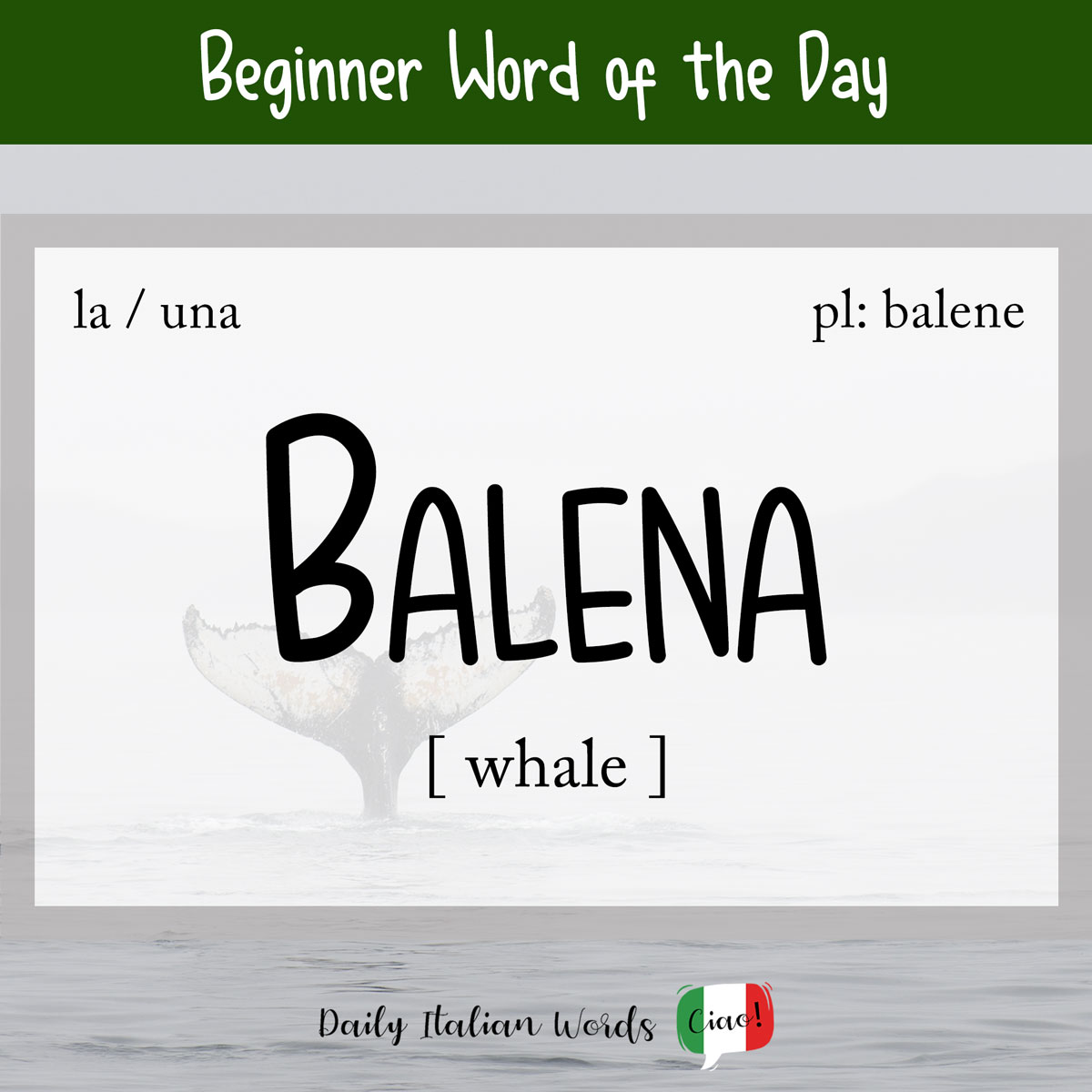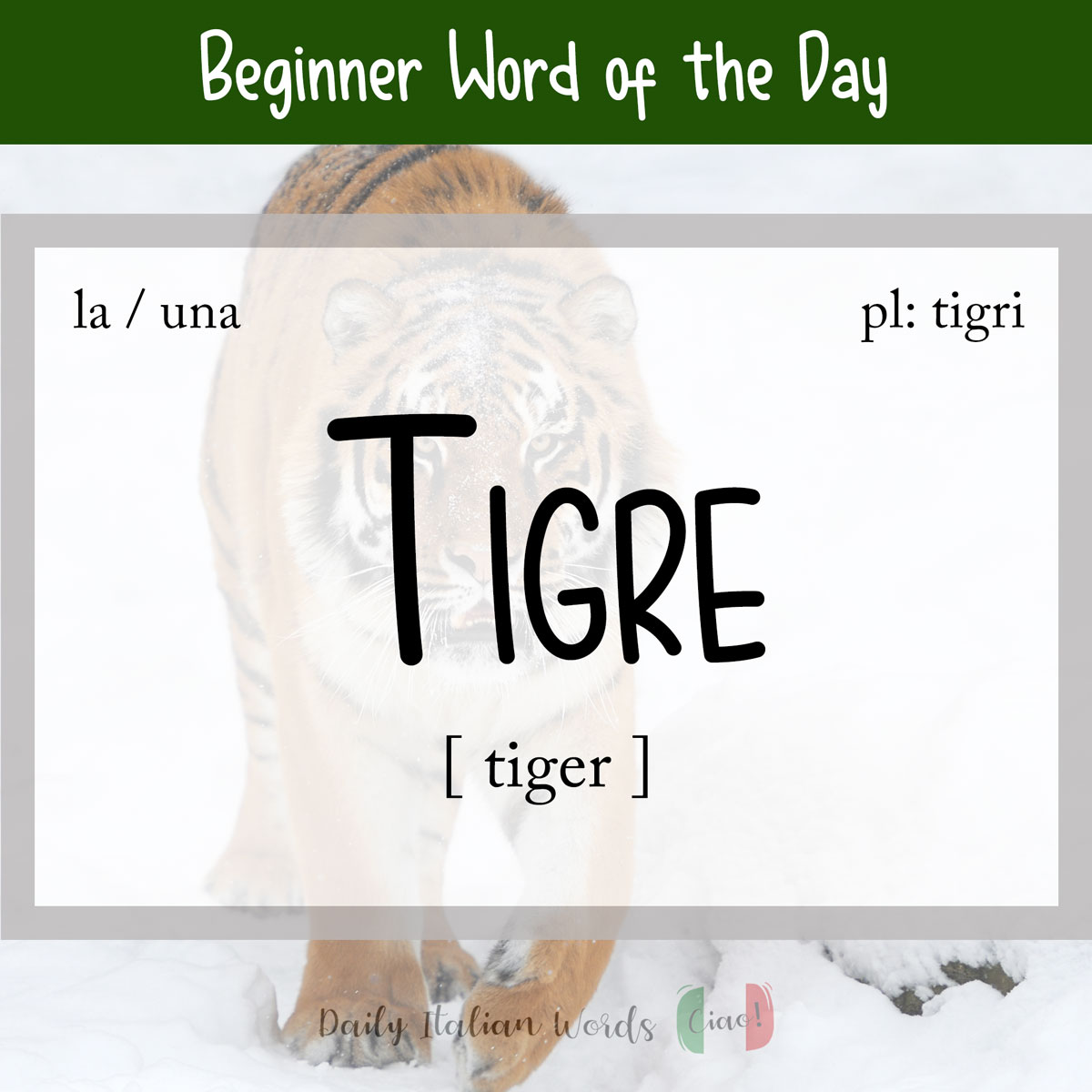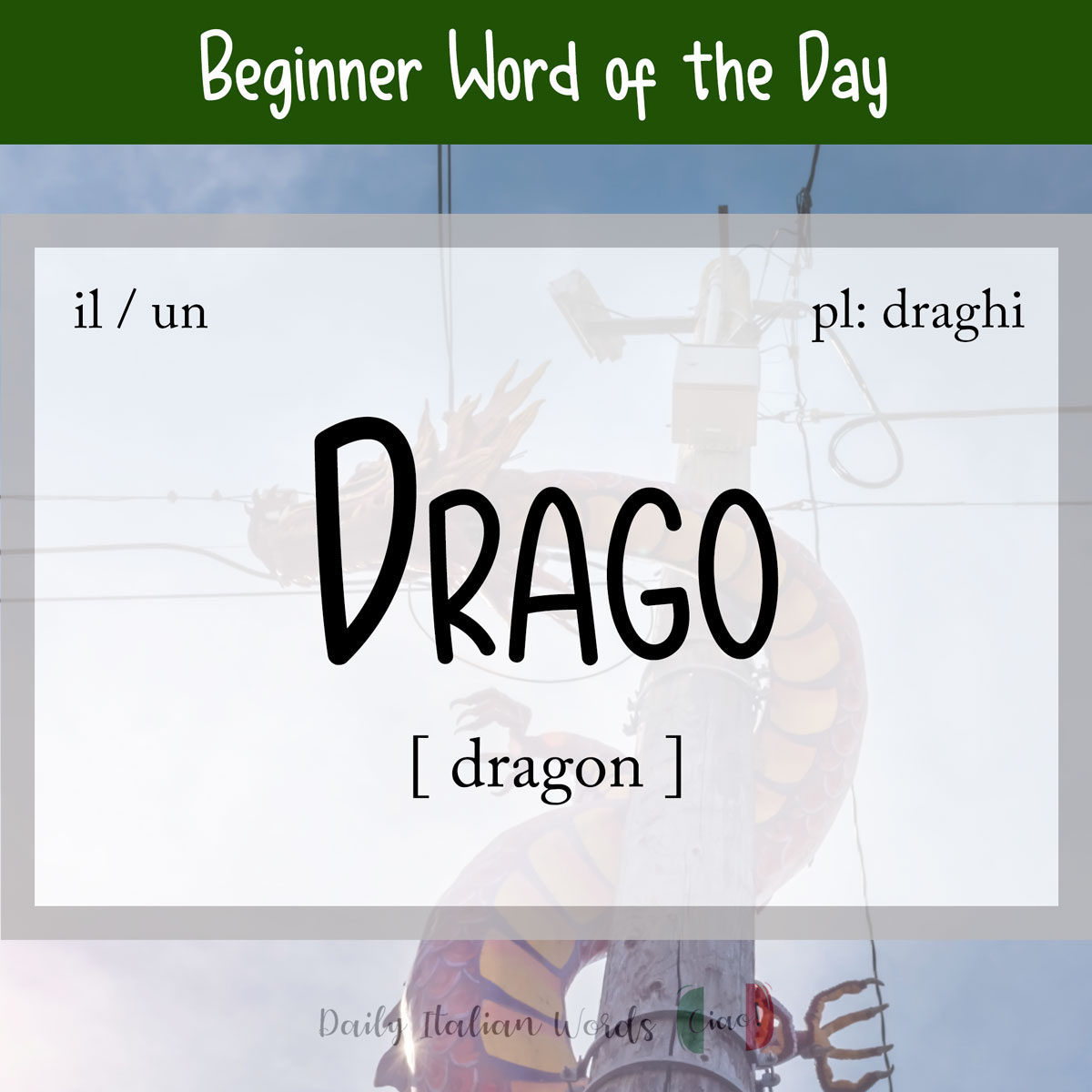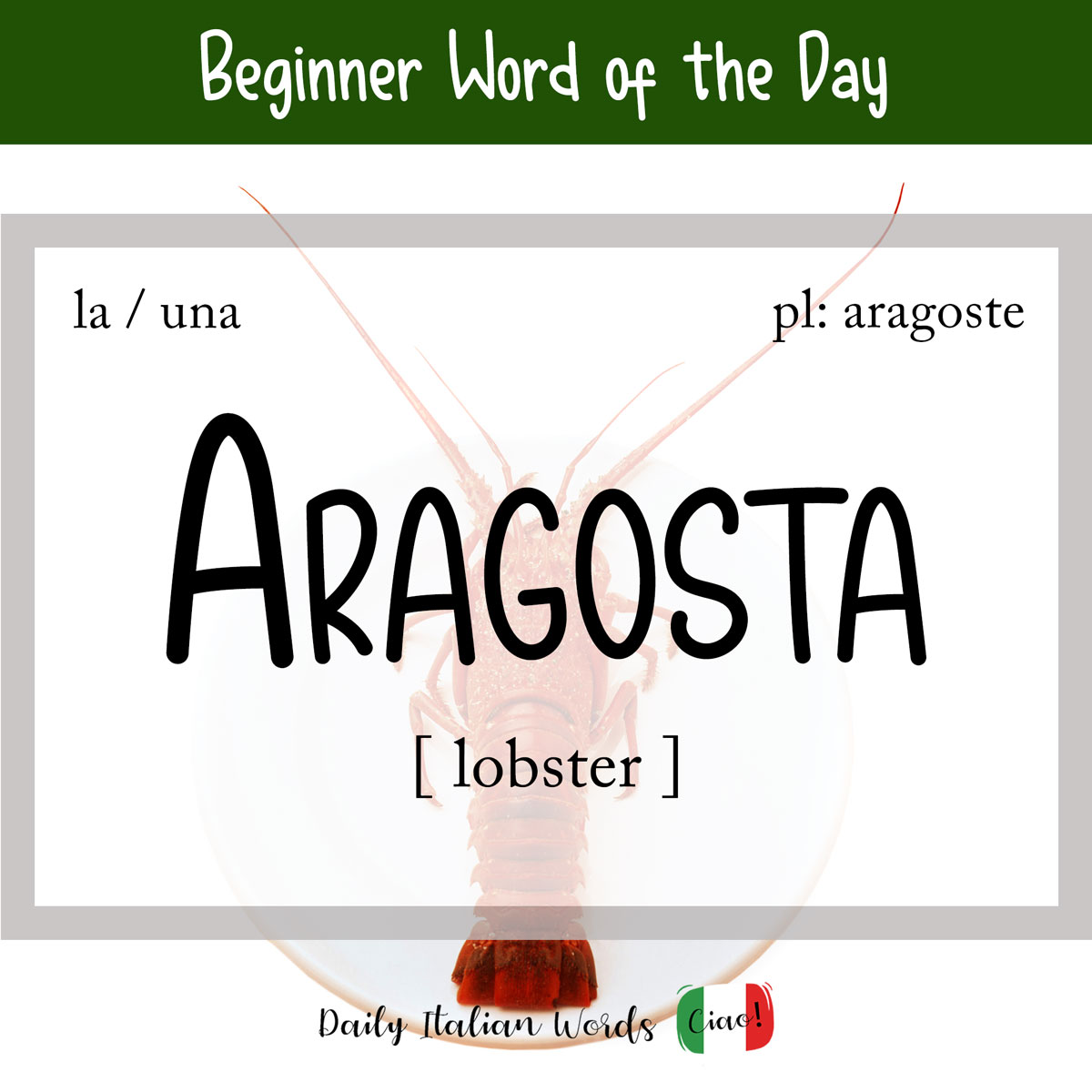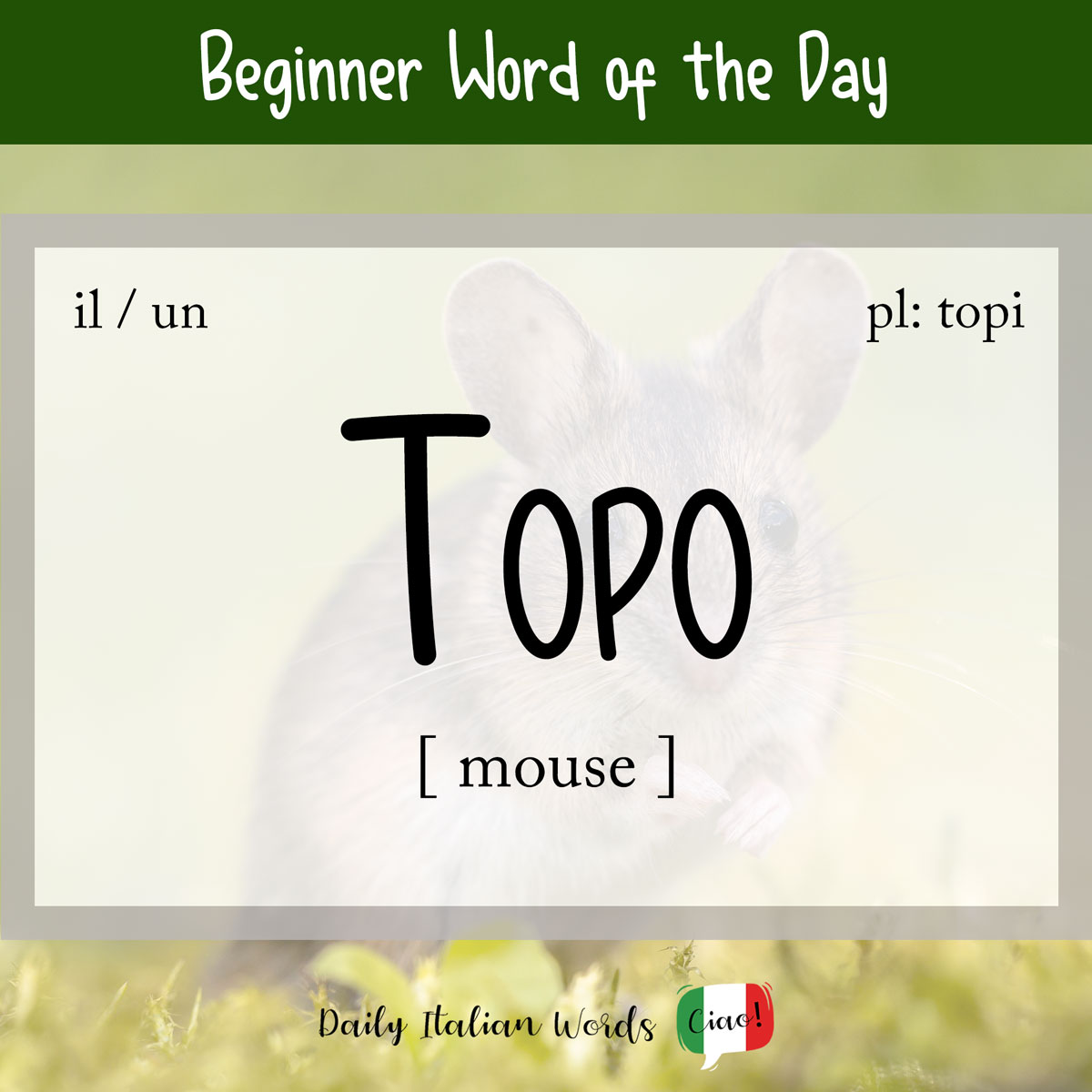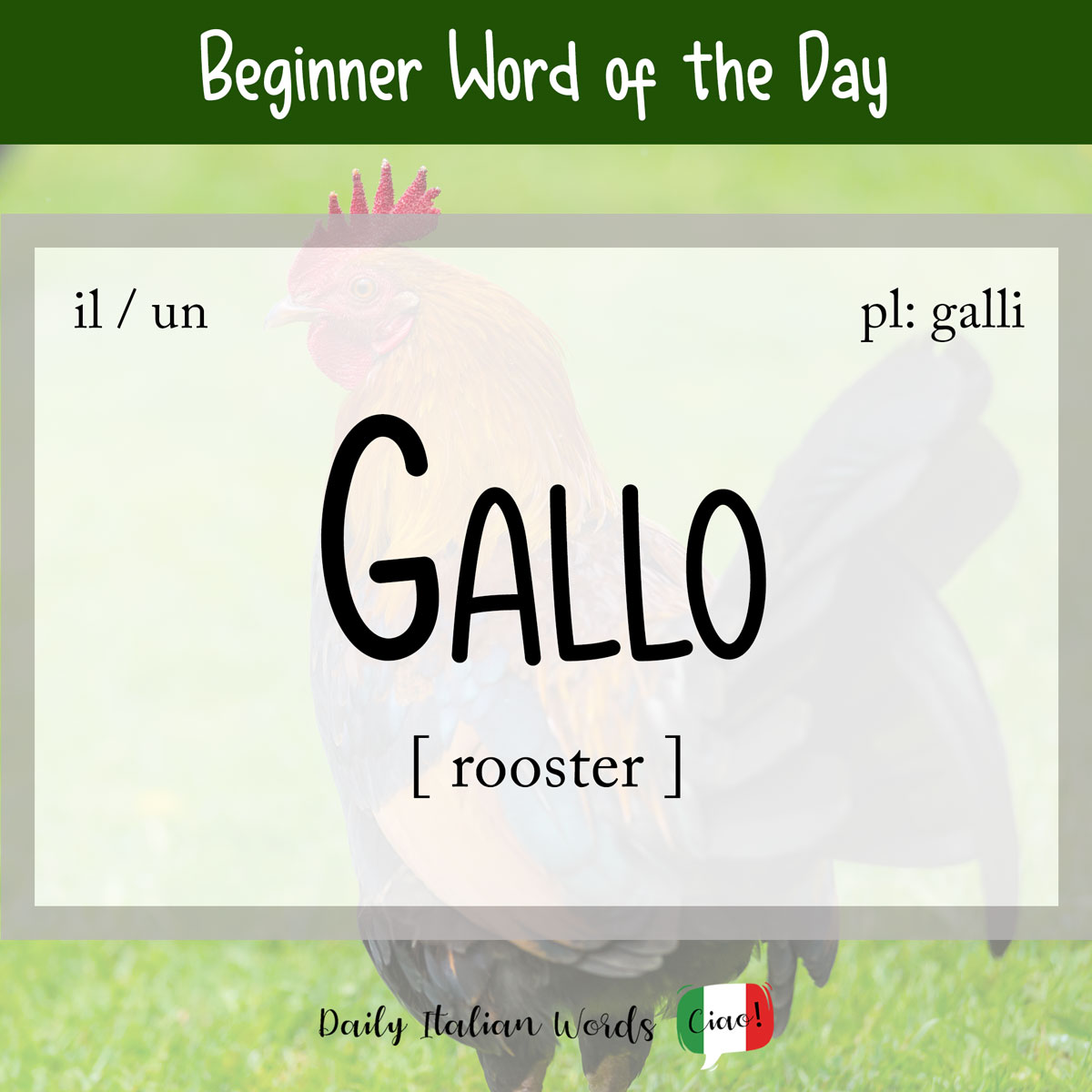Italian Word of the Day: Balena (whale)
The word for whale in Italian is balena (feminine, plural: balene), which comes from the Latin balaena. When talking about a young whale calf or balena giovane, the diminutives balenottero or balenotto are used. Whales are amongst the largest marine mammals (mammiferi marini) on earth, and are characterised by their streamlined hairless bodies, horizontal tail …

